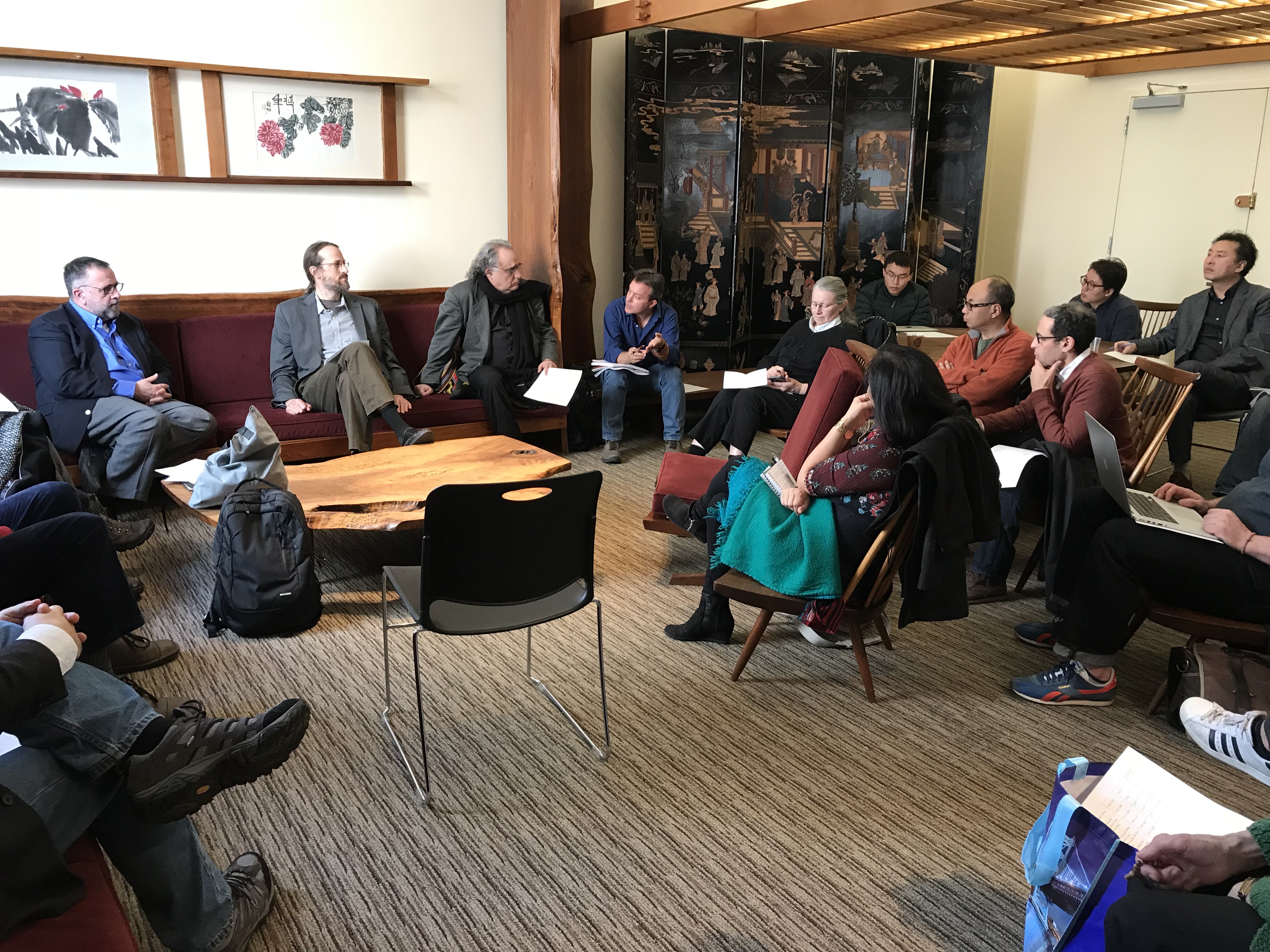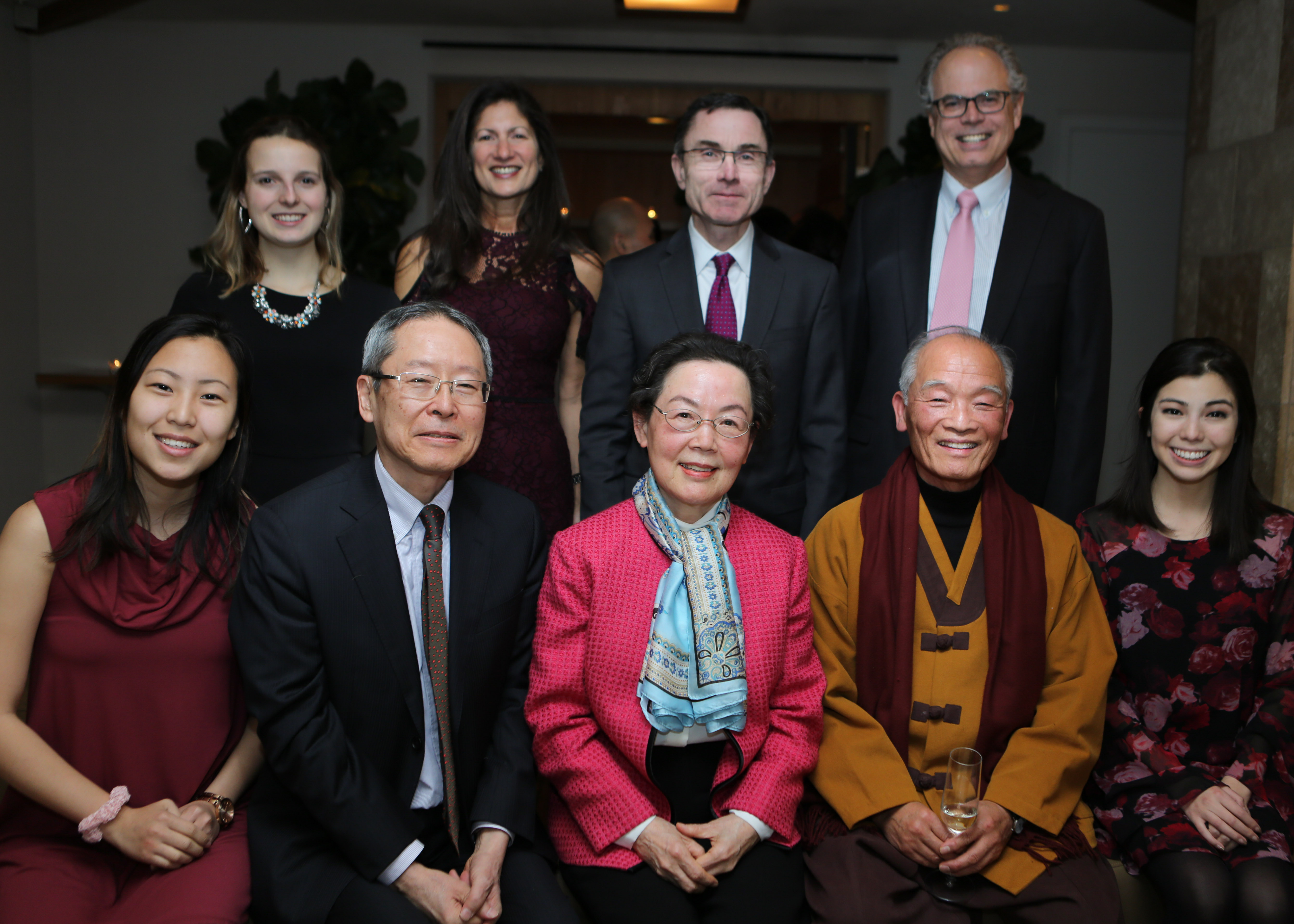 A Conversation on Early Gelug Institutional History with José Cabezón (far left)
A Conversation on Early Gelug Institutional History with José Cabezón (far left)
By Constantine Lignos
Over the Spring Break, WEAI and the EALAC department hosted a conversation with the University of California, Santa Barbara’s Dalai Lama Professor, Dr. José Cabezón, moderated by EALAC’s Leila Hadley Luce Associate Professor of Modern Tibetan Studies, Dr. Gray Tuttle. Dr. Cabezón spoke about the institutional history of the Gelug school of Tibetan Buddhism in celebration of the 600th anniversary of both the death of Tsongkhapa and the construction of the Sera Monastery just outside of Lhasa. The event gathered Columbia students, faculty, and friends for an hour-and-a-half-long informal conversation, followed by a traditional Tibetan lunch with Dr. Cabezón. Dr. Cabezón laid out his theoretical framework underpinning the strength of the Gelug school in Tibet which he attributed to the homogenization of and the consistency between Gelug monasteries.
Dr. Cabezón’s talk reflects his current research project on the Sera monastery, where Dr. Cabezón lived and studied from 1980 until 1985. Since then, Dr. Cabezón has been collecting materials for this new endeavor. In the early 2000’s, Dr. Cabezón returned to the Sera Monastery with his photographer. Pieces of his research project are posted on seramonastery.org. Additionally, Dr. Cabezón has two forthcoming books, Sexuality in Classical South Asian Buddhism and a translation of Mipam’s Treatise on Royal Ethics.
Despite the Spring Break, Dr. Cabezón’s lecture was well-attended. Students, faculty, and the larger Columbia community remained thoroughly engaged in Dr. Cabezón’s talk and asked thoughtful and insightful questions.


